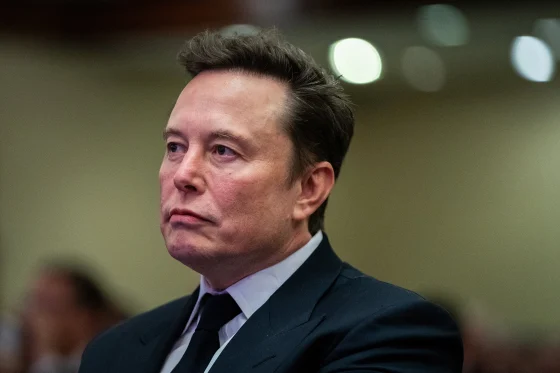adverts
Elon Musk’s rapid rise to power in US politics as the efficiency czar is causing a ripple of anxiety in Europe, and it’s not just because of his controversial social media rants against European regulators.
The billionaire’s expanding political influence, particularly his connections with former US President Donald Trump, is sparking major concerns, especially within the competitive space industry.
German ex-Chancellor Angela Merkel has expressed alarm over Musk’s growing political sway, especially in the space sector, where his company, SpaceX, has become a dominant force.
adverts
Musk’s $210 billion firm has monopolised the commercial launch market, traditionally led by Europe, through its reusable rockets.
Additionally, its 6,000 Starlink satellites are providing global internet coverage, influencing everything from global communications to Ukraine’s battlefield strategy.
This dominance has led to concerns that Musk’s growing influence could result in conflicts of interest that place Europe in a dangerous position of dependency.
At a recent Paris panel, German antitrust official Andreas Mundt described Musk’s control over Starlink as “insupportable” and urged tech regulators to take a more aggressive stance against such concentration of power.
However, Europe’s failure to adapt and compete has also fuelled Musk’s success. While SpaceX continues to thrive, European rivals have been slow to innovate, particularly after rejecting reusable rocket technology a decade ago.
Legacy businesses, such as satellite TV, are struggling to survive in a world of on-demand streaming services, while sectors like maritime and airline Wi-Fi are increasingly turning to Starlink’s affordable and easy-to-install solutions. The ongoing disruptions are reflected in the financial struggles of companies like Intelsat and Eutelsat, both of which have seen substantial revenue declines.
As Europe struggles to catch up, Starlink continues to expand. In September, Air France-KLM announced a deal with Starlink to offer high-speed Wi-Fi on its flights, further solidifying the company’s grip on global internet services.
Meanwhile, Musk’s ability to iterate and improve Starlink’s offerings by launching more satellites keeps the company ahead of its competition.
Europe’s challenge now is to foster its own viable alternatives. While the complaints about Musk’s monopoly are justified, Europe’s most pressing task is to create a competitive, homegrown alternative to Starlink—especially considering that Amazon’s Jeff Bezos is poised to enter the space race with similar ambitions.
The silver lining of criticisms like Merkel’s is that they could spur a much-needed wake-up call, shifting focus toward fostering bold technological innovation, not just regulatory action.
To stay competitive, Europe needs to embrace a robust capital markets system capable of funding ambitious, high-risk ventures. As European Central Bank head Christine Lagarde pointed out, Europe’s tech lag and looming trade tariffs make a unified capital market more crucial than ever.
The real concern may not be Musk’s geopolitical power but Europe’s tendency to react only in crisis—something Merkel herself is all too familiar with.


